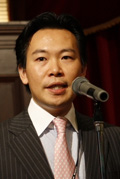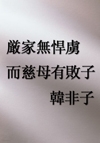|
Support of translation into English:
When you write the inquiry or the answer, this site can support the use of the charge-free translation site where a certain mother language is translated into English, though the Environmental Plazas are English.
Forerunner cordiality
|
A supporting message to International Students: Mr. Masakatzu Motoki I interviewed with President Masakatzu Motoki, who came to Japan from Fuqing County, Fujian Province, China at age of 17, established the “ China Information Bureau”(present Searchina) while studying as an international student, and developed the business up to the present.
Our conversation covered a lot of topics, it was summarized shortly for the purpose of presenting a supporting message to international students. I interviewed with President Masakatzu Motoki, who came to Japan from Fuqing County, Fujian Province, China at age of 17, established the “ China Information Bureau”(present Searchina) while studying as an international student, and developed the business up to the present.
Our conversation covered a lot of topics, it was summarized shortly for the purpose of presenting a supporting message to international students. When I (Masakatzu Motoki) came to Japan in 1989 at age 17, I had not such ambition of becoming the bridge of Japan and China. I came from the countryside of Fujian Province to Japan and went to school while I did part time job. At first, I did the dishes washing up. Then I heard from my colleague there was a place where hourly-wage was good, I transferred my job to Tukiji Fish Market. I got up at 4 am, and went to Shinbashi, there was not bus in service in that early time. 5 persons including me who did not know each other took 480 yen taxi together to the fish market and each of us paid 100 yen to taxi driver. I was welcomed by taxi-taking companions because my body was relatively small then. At working place, I only could say one word “Ha-yi(Yes)” , did not know “ Yi-ye(No)” or “Na-i(there are not)”. I only remembered the basic honorific saying. Although I knew the honorific word “Arimasen”, when I was told the ordinary same meaning word” Na-i”, I did not understand it. I was scolded by saying ”how didn`t you know such a simple word!”. While I worked as a part time worker, I learned Japanese language and graduated from university and had a job. Then I became independent and developed import business by myself. I established a business firm called “China Information Bureau” which aimed at letting Japanese people know the real situation of China. ―― You must have much hardness when you started your business? ――What kind of feeling did you have when you get in contact with many people? ――What is your secret which made you transcend the barrier when starting your business? The people who give me help are upper ones in age and economics as well as life experiences. They adequately see through persons. These superior people can spot a person lying, and like the young men who have good manners. To express appreciation to the persons whom you get help from, and try to convey your feeling of gratitude to them are very important, I think. Searchina(former China Information Bureau) which started her business by introducing China to Japan, is moving her emphasis to letting Chinese people know Japanese affairs. With the increase of Chinese purchase power, to let China know Japanese high quality products is very important to both countries. I think that knowing each other is related to the development of both countries.
When talking his province fellows, the high ranking monk, Yingen Great Teacher (the founder of Japanese Obaku Sect of Buddhism) and Hyakujo Ekai Great Teacher, his eyes were sparkling with excitement. Hyakujo Great Teacher had the famous word “ No one day work, no one day meal” which means that “the rich human nature is cultivated through hard work.” This word “ managing himself on his own initiative” was carved into his heart in his childhood. I felt it had some certain connection with the present development of Searchina which was supported by many people. At the end of long interview, I earnestly requested him to write a word for me. He accepted and wrote “Onrai(favor coming), It was a favor (On) again. A Brief to Mr. Masakatzu Motoki |


